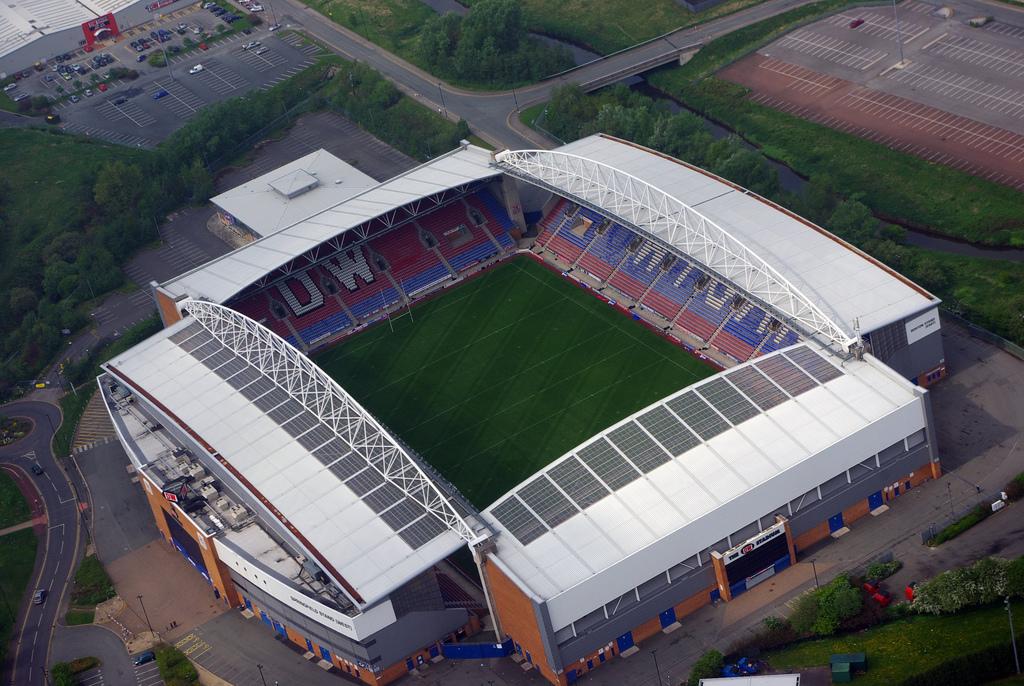The decision of the Upper Tribunal (Lands Chamber) in Wigan Football Company Ltd v Cox (VO) (2019) UKUT 0389 (LC) provides further guidance on the question of “material change of circumstance” when valuing for rating, and builds on other recent tribunal decisions concerning this issue.
Wigan, which had played in the Premier League for a number of years, was relegated from that league in 2013, to the Championship, and was then relegated again in 2015 to League One. After the second relegation, Wigan made proposals seeking reductions in the rating assessment of its stadium to reflect the effects of the two relegations. The Valuation Officer was not willing to agree a reduction in assessment for either, or both, of the relegations, and the ratepayer’s appeal was dismissed by the Valuation Tribunal for England.
The ratepayer appealed further to the Upper Tribunal (Lands Chamber). Before the Upper Tribunal the ratepayer contended that there had been physical changes to the “state of the hereditament” following relegation, because of the closure of one of the ticket offices and other alterations. The ratepayer also contended that the relegations, either individually or together, represented a change to the mode or category of occupation. This was because the way in which the stadium was occupied, and the way in which the football club operated, were very different depending upon the league in which the club was playing. In the Premier League income was derived predominantly from television revenues, which were dependent upon Premier League status, whereas, in the Championship and League One, revenues were principally derived from attendances at matches and other match day receipts. The ratepayer also contended that each league represented a factual monopoly and, thus, a different category of occupation. Finally, the ratepayer contended that the relegations represented changes that were “physically manifest in the locality” by virtue of the very different attendance numbers at Premier League matches compared with those in the Championship or League One.
The respondent Valuation Officer contended that the changes identified by the ratepayer were economic ones and that they were the consequences of relegation, which was itself the alleged material change. The result of this, the Valuation Officer contended, was that the material change identified by the ratepayer (relegation) was an economic change, rather than one that was physically manifest either at the property, or in its use, or in the locality.
The Tribunal found that the ratepayer could not argue for a change to the “state of the hereditament”, because this had not been explicitly identified in the ratepayer’s proposal. In any event, the Tribunal considered that there had been no such physical change to the hereditament.
There had, also, been no change to the mode or category of occupation by virtue of the relegations. This phrase used in the legislation “mode or category” is an example of two words meaning the same thing, rather than two different concepts, and the occupation was still that of a football stadium. In the words of the Tribunal, “football is football”.
Whilst attendance numbers were undoubtedly very different between the different leagues, the alleged material change itself (relegation) was not physically manifest in the locality of the hereditament. What was physically manifest was the consequence of that relegation in terms of attendance numbers, rather than the event itself.
The Tribunal referred to its original guidance in respect of “material change of circumstance”, given in its decision in Merlin Entertainments Ltd v Cox (VO) (2018) and found that, applied to this case, that guidance made clear that there had been no material change of circumstance. The ratepayer’s appeal was dismissed.
Relegation has a massive financial impact for football clubs, but it is, apparently, a matter which cannot be reflected in the rating assessment of a club, other than at a revaluation. This will be a disappointment to those clubs affected by relegation. The Tribunal’s conclusion leaves apparent anomalies in the rating list, such as that of Sunderland, currently playing in League One, but assessed on the basis of its former status as a Premier League club. The Tribunal recognised these anomalies but stated that “the problem and the unfairness lie with the method of valuation used when the list was compiled”. It remains to be seen whether, as the Tribunal hoped, “it may be that the difficulties highlighted in this case will not occur in the future”.

